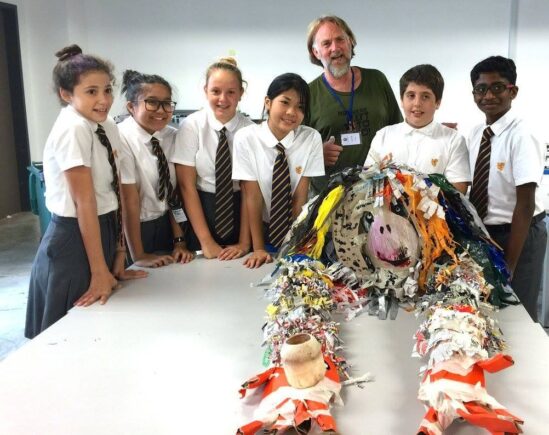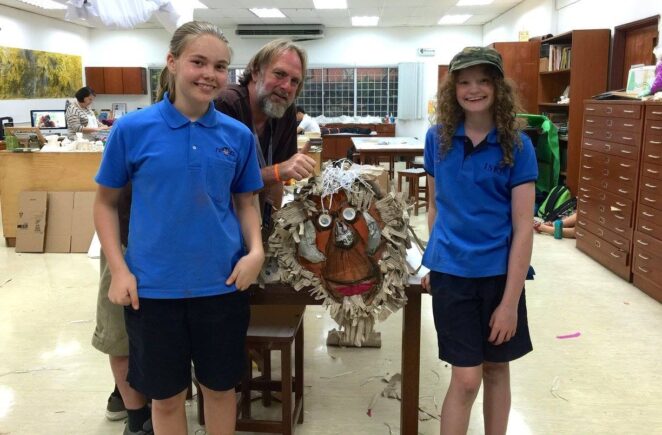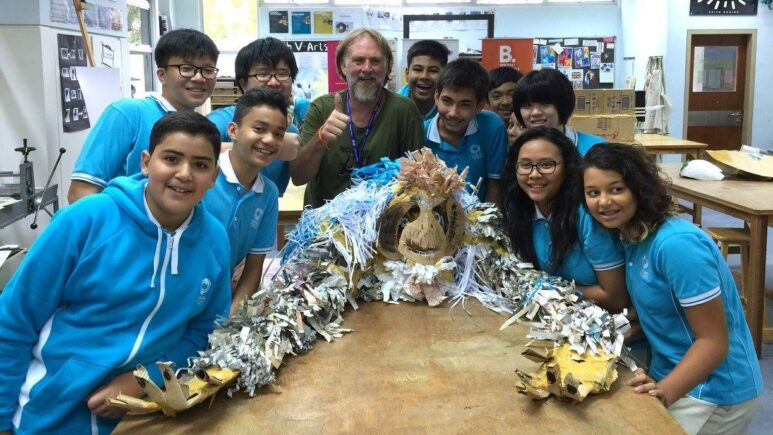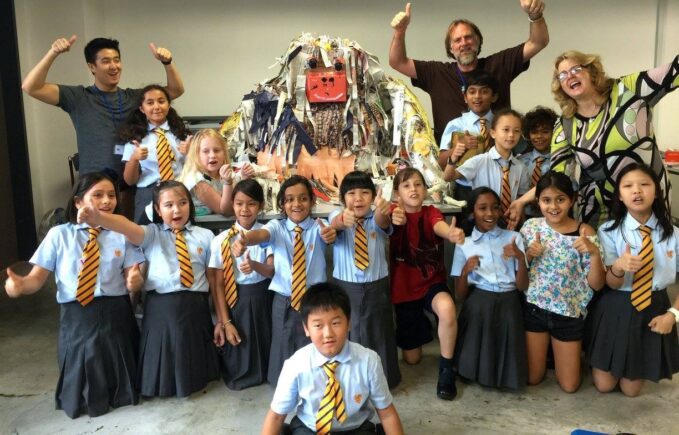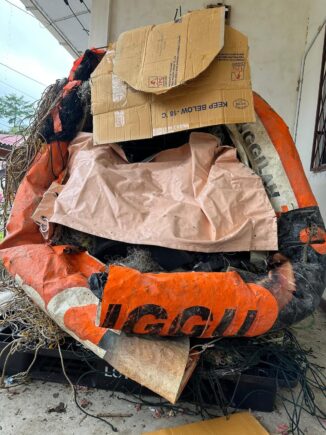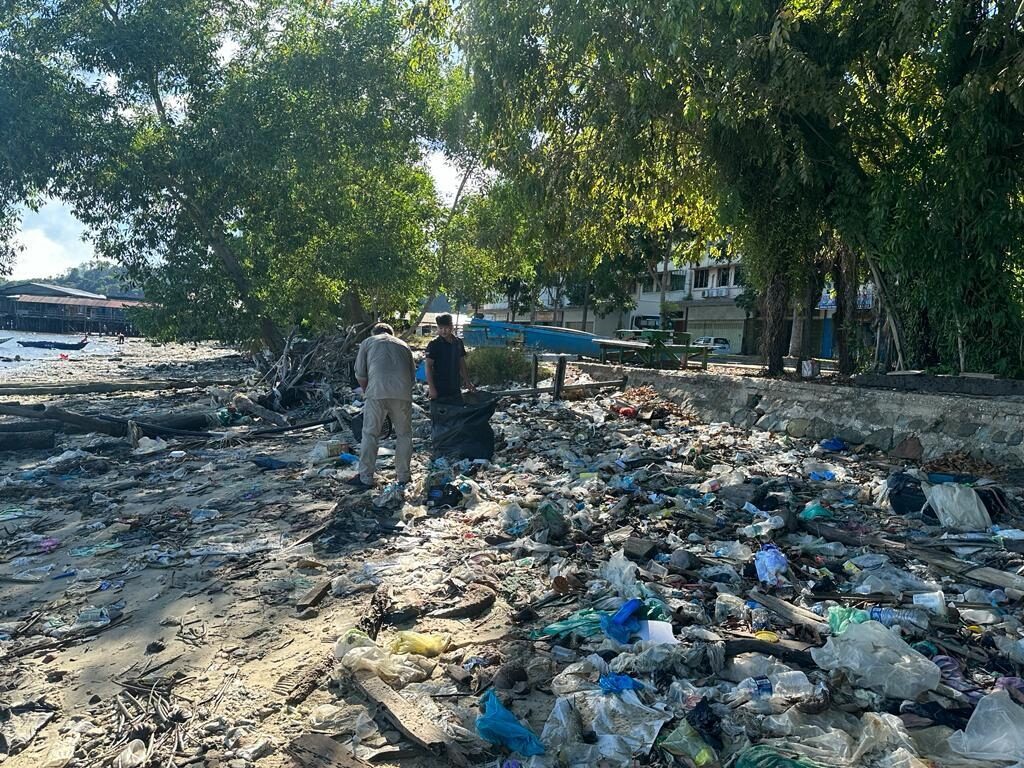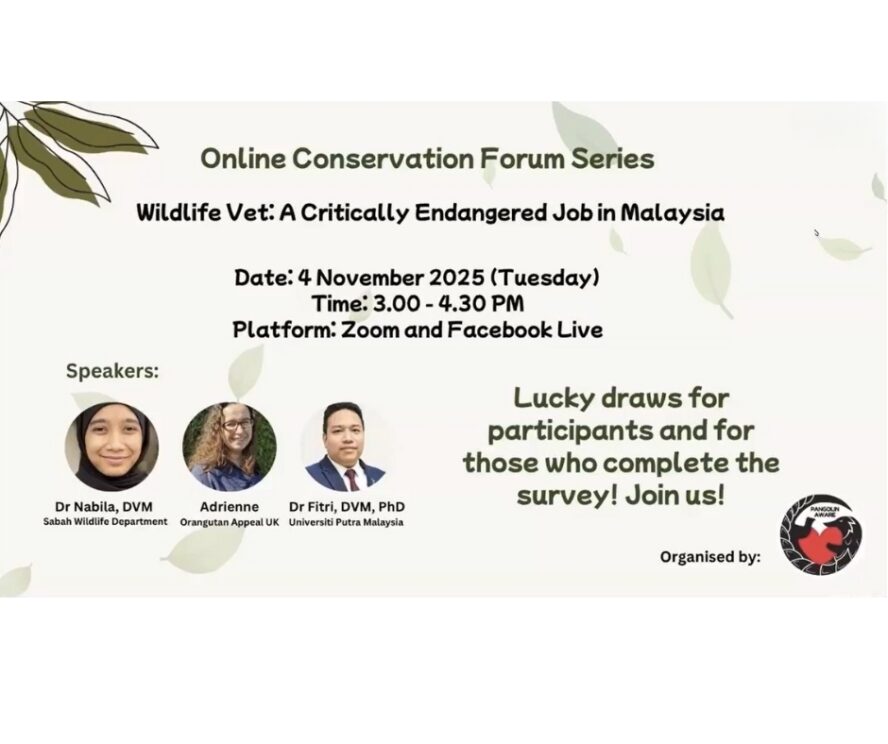News
Plastic pollution
Orangutans and other species face indirect consequences as plastic pollution disrupts ecosystems and contaminates their habitats.
13/11/2023
Plastic pollution and the rainforest
Borneo, like many other regions, is not immune to the challenges posed by plastic pollution. Plastic waste can enter the rainforest through various means, including rivers and streams that flow through urban areas where plastic waste is improperly disposed of.
Plastic waste can leach harmful chemicals into the soil and water which can have a cascading effect on the plants, animals and people living off the land. Animals may mistake plastic items for food or become entangled in them, leading to injury or death. The ingestion of plastic can also have adverse effects on the health of wildlife.
In an effort to raise awareness of this issue, our chairperson and artist, Jacha Potgieter, creates sculptures of endangered species using only waste plastic. As part of Orangutan Caring Week 2023, Jacha constructed a new sculpture using rubbish found in and around the Sandakan area by volunteers. Our hope is that this incredible work of art will help to inspire people to recycle their plastic waste whilst highlighting the devastating affects of plastic pollution to the critically endangered Bornean orangutan.
Plastic pollution and the ocean
It is estimated that by 2050 the ocean will contain more plastic by weight than fish. The plastic that finds its way into the oceans inevitably will pose a risk of ingestion by sea birds, fish, marine mammals, etc.
Sadly it's not uncommon now to find sea life dead with significant amounts of plastic in their stomach. A recent study by Plymouth University found that one third of all fish caught in the UK contained tiny pieces of plastic. More worryingly, a study by Ghent University, Belgium, found that people who regularly eat seafood ingest up to 11,000 tiny pieces of plastic each year!
![Plastic being collected from Sandakan beach.]()
Plastic being collected from Sandakan beach.
It's likely that every person reading this has used a plastic bottle at some point in their life. Plastic, in recent decades, has become an item of convenience and the surge in plastic bottle use has accompanied a desire for bottled water as we modernise our lifestyle.
Several recent reports indicate the urgent global situation associated with the world's plastic use. Two statistics in particular stand out. One, that globally humans buy a million plastic bottles per minute. The second, 91% of all plastic is not recycled.
Plastic bottles are commonly made from polyethylene terephthalate (Pet), which take 400 years to naturally decompose, but is highly recyclable.
On geologic timescales, 400 years is not a significant amount of time, and we may believe that we can just wait until the bottles naturally decompose. However, there are two serious issues with this; 1. There are no signs of decreasing plastic use, meaning the plastic decomposition clock will constantly be reset and 2. We need to understand how this increase in plastic waste globally will impact other systems and their function.
Most plastic, bottles included, ends up in either the ocean or in landfill. Find out how you can help the critically endangered orangutan.
Explore more articles
![WARN Asia Conference Sepilok Team Photo]()
News
WARN Asia Conference 2025
Team travels to Thailand to share expertise and see frontline wildlife rescue in action.
![Ibri celebrating 20 years with Orangutan Appeal UK 1]()
News
Honouring 20 years of incredible service
Ibri celebrates two decades of exceptional care at Sepilok.
![UPM Forum Website Image]()
News
Inspiring next generation of wildlife vets
Online forum for aspiring conservation veterinarians.
